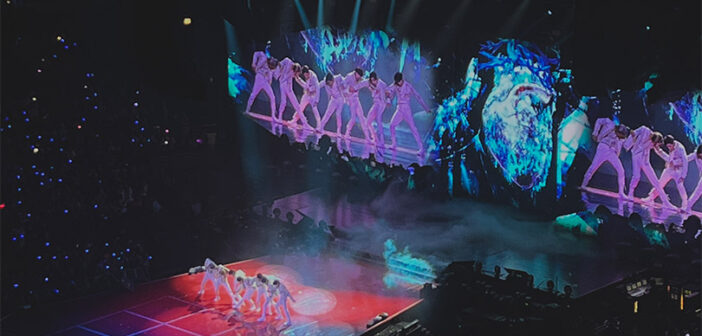Korean pop music, known as K-pop, has cultivated an intensely devoted fandom culture that spans age groups. K-pop followers form tight-knit communities both online and in real life, engaging in various activities that connect them to the music and their favorite idols.
Discovering K-pop
Jazmin Arias, ’26, first discovered the genre through a middle school friend. “I had a friend in middle school who would tell me all about BTS, so I eventually started listening, slowly but surely,” she said. Now, Arias follows groups like Stray Kids and ENHYPEN, drawn to their specific music style.
Fellow NCC sophomore Grace Cavazos gained interest through a family member. “My aunt was a big fan of K-pop, BTS especially, and slowly I started listening more,” she said. She enjoys the inclusive nature of K-pop, saying, “K-pop artists try and include their fans in more things with platforms such as Weverse.”
Mary Rasmussen, ’25, got into K-pop in 2018 through friends sharing songs online. “I thought they were catchy and decided to add them to my playlist. Then I got more into the fandom and started getting interested in more groups and songs,” she said. Rasmussen is a major Red Velvet fan, drawn in by their versatility and talents as singers.
Alexa Leviness, ’26, has commemorated her favorite group permanently by getting a tattoo inspired by BTS’s “Love Yourself: Her” album.
“What I love about them is their message about loving yourself,” said Leviness.
Community engagement
A major part of K-pop fandom culture revolves around community engagement. Arias participates in fan projects like holding up banners during concerts that contain a special message for the artist. Cavazos, Arias and Leviness regularly attend shows together, bonding over their shared interest.
“I have made so many lifelong friends through K-pop from just going to concerts and connecting online,” said Leviness.
Videos on TikTok and Instagram unite fans globally through inside jokes and memes. “I follow a lot of Red Velvet and other K-pop fan accounts on Instagram and TikTok. I love how everyone makes funny content and memes related to the fandom and how hyper-specific the jokes and references are. It truly makes you feel connected to one another,” said Rasmussen.
A key component in K-pop concerts is the fan chants. Each group or artist typically has a unique fan chant for their group and additional fan chants for specific songs. Fans usually learn the chants beforehand and encourage people to participate.
Fan chants during performances let devotees feel like part of the experience. “I screamed my lungs out,” Arias said, describing participating in a chant at an ENHYPEN show. Leviness agreed: “For me, learning and shouting the fan chants make the concert more exciting.”
A sense of belonging
K-pop fandom culture also fosters a sense of community and shared identity and starts many friendships.
“Me and my roommate really bonded over our love for K-pop. Before, we were just friends, but after we found out we both liked K-pop, we immediately became super close. We began talking a lot about K-pop news and our favorite songs and artists and would stay up late together watching K-pop concerts and music videos. I don’t think I would ever have gotten as close with her if it wasn’t for us both loving K-pop. ” said Rasmussen.
Cavazos also emphasized the “stronger bond” among K-pop fans, saying the whole community has “brought many people together.”
Through buying albums and merchandise, learning fandom history, attending events, and forging friendships, K-pop followers immerse themselves in a meaningful fan culture.
NCC also has a K-pop club that hosts different events, such as movie and karaoke nights, where fans can bond over shared interests.
Cavazos says the best part of being in the K-pop fandom is “the bonds you make with people.” She also credits K-pop as a positive force through tough times when she was younger. For her, BTS had an especially big impact as they were the first group she followed.
Leviness also emphasized the cultural connections she has gained.
“The best part about being involved in the K-pop fandom culture is being able to learn and experience a different culture,” she said.
Rasmussen summed up the appeal by saying, “I loved that I was opened to an entirely different fandom and got to befriend so many people because of it.”
The passion and devotion of this community are emblematic of the power of music to bring people together. As Arias said, “these groups love their fans just as much as we love them.” For K-pop fans across the world, it’s this reciprocal love that creates a sense of belonging.

